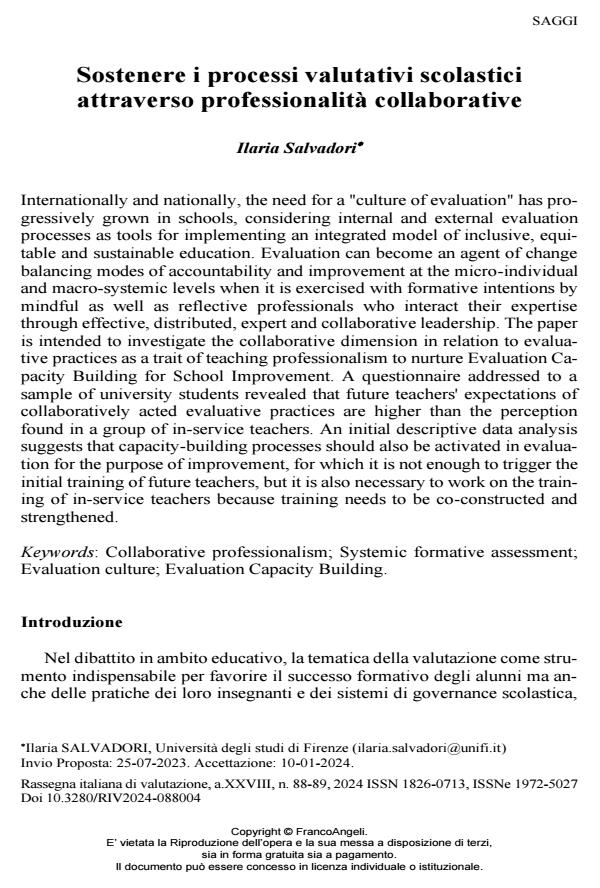Sostenere i processi valutativi scolastici attraverso professionalità collaborative
Journal title RIV Rassegna Italiana di Valutazione
Author/s Ilaria Salvadori
Publishing Year 2024 Issue 2024/88-89
Language Italian Pages 20 P. 55-74 File size 451 KB
DOI 10.3280/RIV2024-088004
DOI is like a bar code for intellectual property: to have more infomation
click here
Below, you can see the article first page
If you want to buy this article in PDF format, you can do it, following the instructions to buy download credits

FrancoAngeli is member of Publishers International Linking Association, Inc (PILA), a not-for-profit association which run the CrossRef service enabling links to and from online scholarly content.
Internationally and nationally, the need for a "culture of evaluation" has progressively grown in schools, considering internal and external evaluation processes as tools for implementing an integrated model of inclusive, equitable and sustainable education. Evaluation can become an agent of change balancing modes of accountability and improve-ment at the micro-individual and macro-systemic levels when it is ex-ercised with formative intentions by mindful as well as reflective pro-fessionals who interact their expertise through effective, distributed, expert and collaborative leadership. The paper is intended to investi-gate the collaborative dimension in relation to evaluative practices as a trait of teaching professionalism to nurture Evaluation Capacity Build-ing for School Improvement. A questionnaire addressed to a sample of university students revealed that future teachers' expectations of col-laboratively acted evaluative practices are higher than the perception found in a group of in-service teachers. An initial descriptive data analysis suggests that capacity-building processes should also be acti-vated in evaluation for the purpose of improvement, for which it is not enough to trigger the initial training of future teachers, but it is also necessary to work on the training of in-service teachers because train-ing needs to be co-constructed and strengthened.
Keywords: Collaborative professionalism; Systemic formative assess-ment; Evaluation culture; Evaluation Capacity Building.
Ilaria Salvadori, Sostenere i processi valutativi scolastici attraverso professionalità collaborative in "RIV Rassegna Italiana di Valutazione" 88-89/2024, pp 55-74, DOI: 10.3280/RIV2024-088004